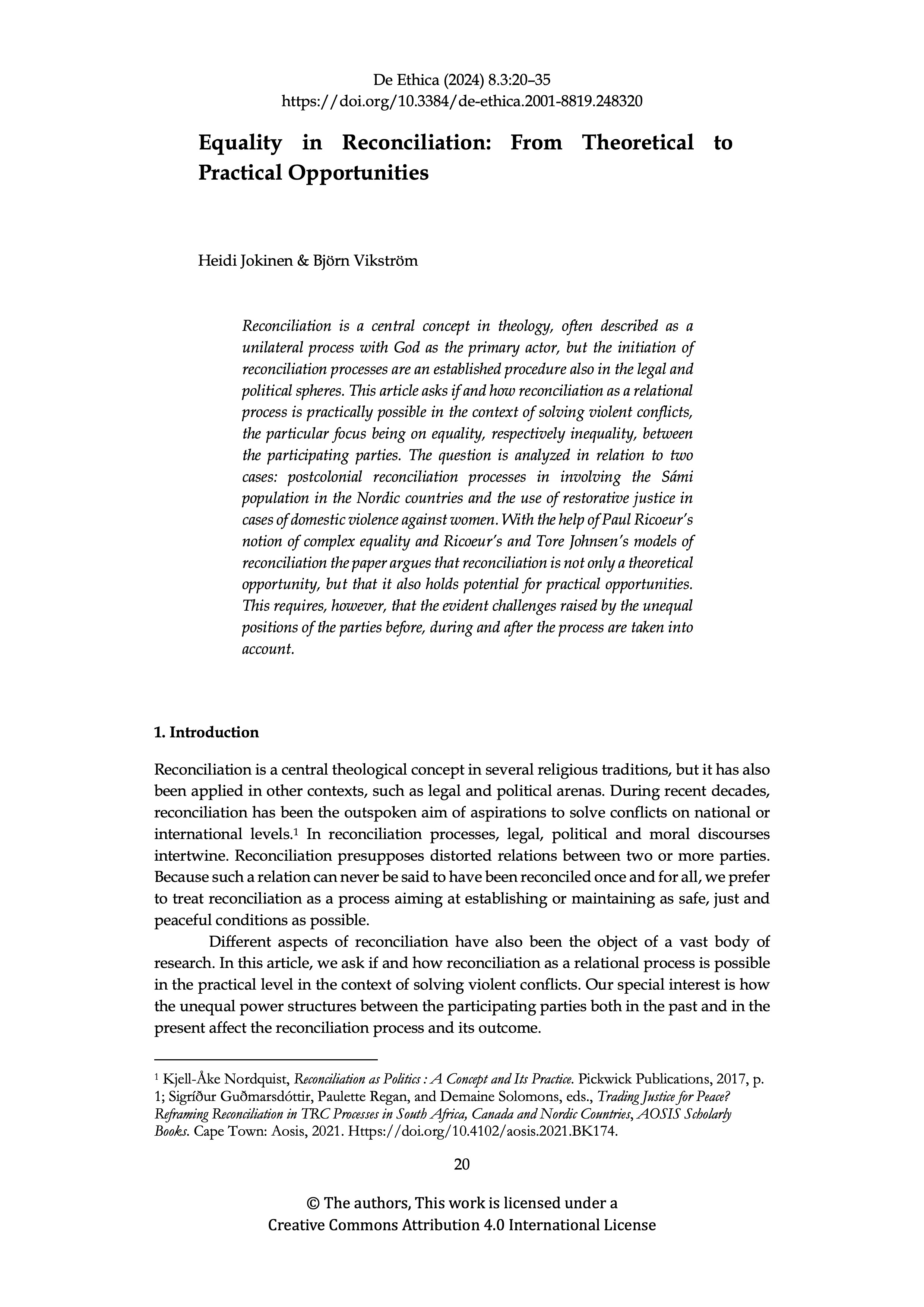Equality in Reconciliation
From Conceptual to Practical Opportunities
DOI:
https://doi.org/10.3384/de-ethica.2001-8819.248320Keywords:
reconciliation, complex equality, sámi, Ricoeur, gender-based violenceAbstract
Reconciliation is a central concept in theology and in political and legal reconciliation processes where these different discourses intertwine. However, while in theology reconciliation is often a unilateral process with God as the primary actor, the situation is quite different in the worldly contexts. This article asks if and how reconciliation as a relational process is practically possible in the context of solving violent conflicts, the particular focus being on equality, respectively inequality, between the participating parties. The question is analyzed in relation to postcolonial reconciliation processes in involving the Sámi population in the Nordic countries and to the use of restorative justice in cases of domestic violence against women. With the help of Paul Ricoeur’s notion of complex equality and Ricoeur’s and Tore Johnsens models of reconciliation the paper argues that while reconciliation is a conceptual opportunity it also holds potential for practical opportunities, in particular if the evident challenges are taken into account.

Downloads
Published
How to Cite
Issue
Section
License
Copyright (c) 2024 Heidi Jokinen, Björn Vikström

This work is licensed under a Creative Commons Attribution 4.0 International License.
